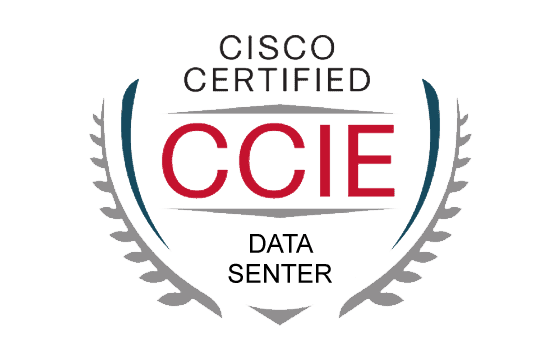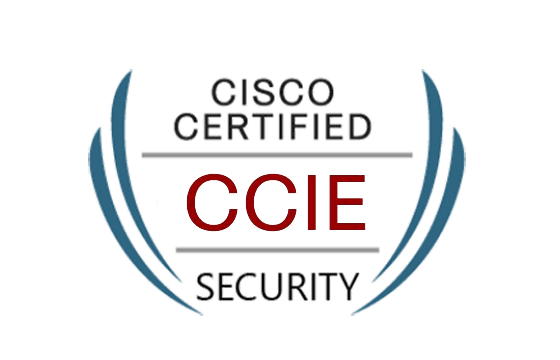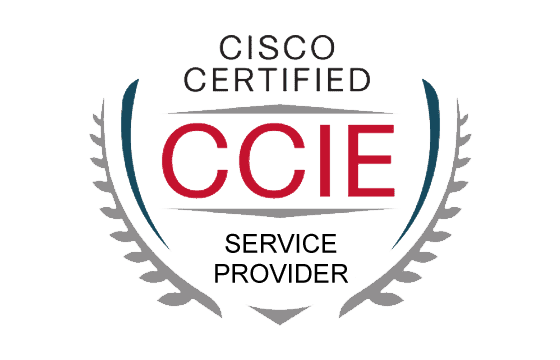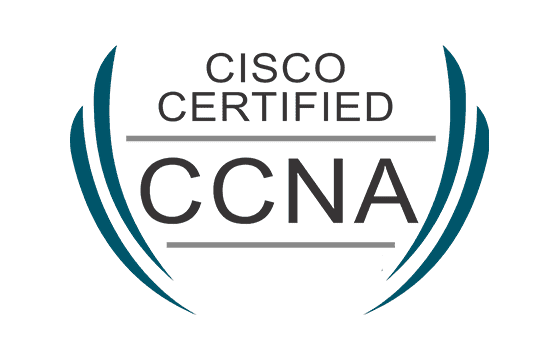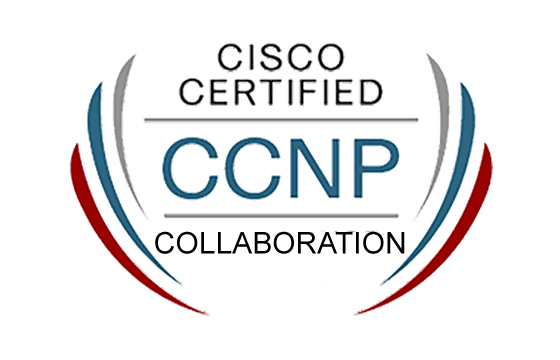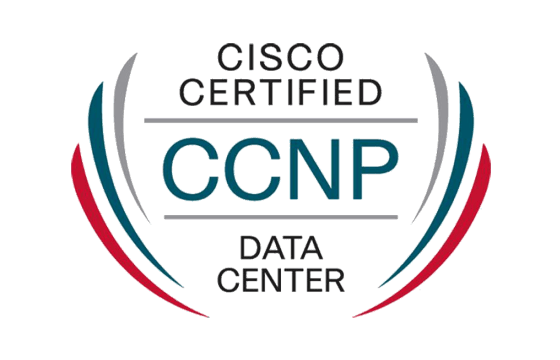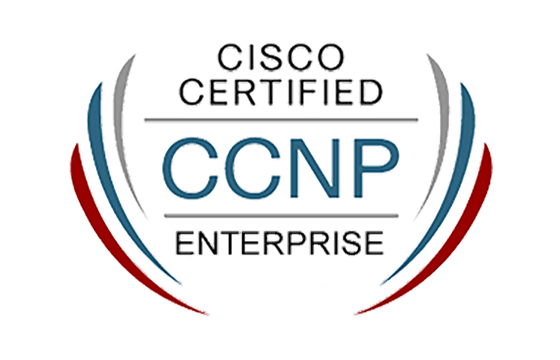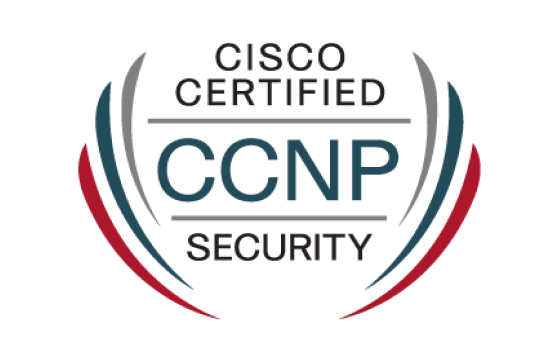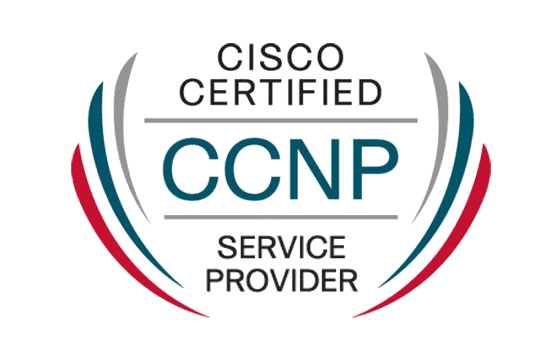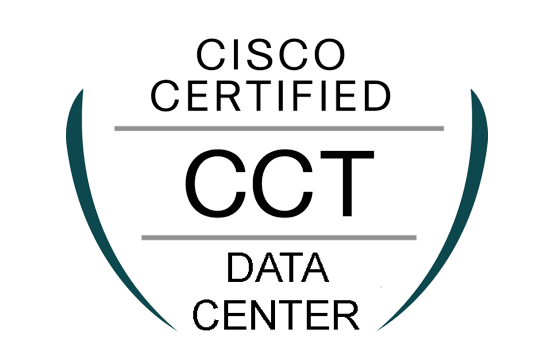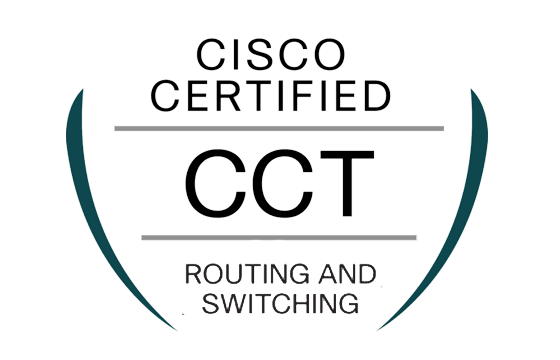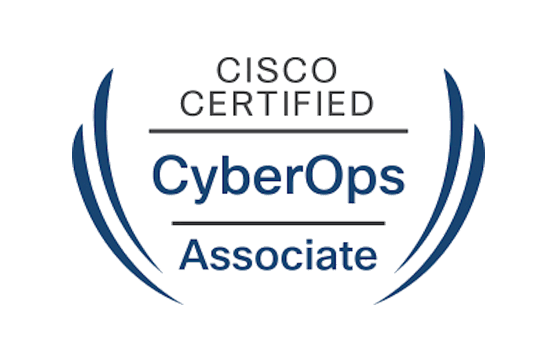Pass Your Cisco CyberOps Associate Certification Easy!
Cisco CyberOps Associate Certification Exams Questions & Answers, Accurate & Verified By IT Experts
Instant Download, Free Fast Updates, 99.6% Pass Rate.

Understanding Cisco Cybersecurity Operations Fundamentals (CBROPS)
Includes 477 Questions & Answers
$69.99
Download Free CyberOps Associate Practice Test Questions VCE Files
| Exam | Title | Files |
|---|---|---|
Exam 200-201 |
Title Understanding Cisco Cybersecurity Operations Fundamentals (CBROPS) |
Files 2 |
Cisco CyberOps Associate Certification Exam Dumps & Practice Test Questions
Prepare with top-notch Cisco CyberOps Associate certification practice test questions and answers, vce exam dumps, study guide, video training course from ExamCollection. All Cisco CyberOps Associate certification exam dumps & practice test questions and answers are uploaded by users who have passed the exam themselves and formatted them into vce file format.
Understanding the Cisco CyberOps Associate Certification
Cybersecurity has become one of the most critical areas in modern information technology. With businesses, governments, and individuals relying heavily on digital systems, the risks posed by malicious actors are greater than ever before. Every day, organizations face challenges such as data breaches, ransomware attacks, phishing schemes, and insider threats. These attacks not only cause financial losses but also damage reputations and disrupt essential services.
To counter these threats, Security Operations Centers, known as SOCs, have become an integral part of organizational infrastructure. SOCs are dedicated teams that monitor, detect, and respond to cyber incidents around the clock. Professionals working in these environments need specialized training to identify anomalies, investigate alerts, and act quickly to minimize damage.
The Cisco CyberOps Associate certification was developed to prepare individuals for this demanding role. By focusing on the skills required to work in a SOC, it opens opportunities for aspiring cybersecurity professionals and helps organizations build a stronger defensive posture.
What the Certification Represents
The CyberOps Associate certification represents a foundational step into the world of cybersecurity operations. It provides candidates with both theoretical understanding and practical skills to thrive in SOC environments. Unlike highly advanced credentials that assume years of experience, this certification welcomes individuals who are new to cybersecurity but possess basic IT or networking knowledge.
It is designed to validate entry-level competence in security monitoring, threat analysis, and incident response. The certification demonstrates to employers that a candidate is prepared to handle frontline security responsibilities. In a job market where cybersecurity talent is scarce, having a recognized certification like this can make a significant difference in securing employment.
Skills Validated by the Certification
The Cisco CyberOps Associate certification verifies a range of essential abilities that directly align with SOC job roles. Among the core skills are:
Recognizing and explaining fundamental cybersecurity concepts and terminology
Monitoring systems and reviewing alerts from security tools
Identifying malicious activity such as malware, phishing, and denial of service attacks
Following structured processes for incident response and recovery
Supporting investigations with basic digital forensics methods
Understanding and applying security policies, laws, and ethical standards
These skills go beyond theory. They reflect the daily challenges SOC analysts face and ensure that certified professionals can perform effectively from day one.
The Role of SOC Analysts in Modern Organizations
SOC analysts serve as the first line of defense in the cybersecurity chain. Their role involves continuously monitoring network traffic, reviewing system logs, and analyzing alerts generated by security solutions. When anomalies or suspicious patterns appear, SOC analysts investigate further, validate whether an incident has occurred, and determine the severity of the threat.
Their duties do not stop at detection. SOC analysts also document findings, escalate incidents to specialized teams if needed, and suggest preventative measures to strengthen defenses. They must combine technical expertise with critical thinking and communication skills to succeed in this environment.
Given the increasing volume and complexity of cyberattacks, SOC analysts have become indispensable to modern organizations. Without these professionals, many incidents would go unnoticed until serious damage occurred.
Why CyberOps Associate Stands Out
There are many cybersecurity certifications available, but the Cisco CyberOps Associate stands out for several reasons. First, it is backed by Cisco, a global leader in networking and security technology. Employers trust Cisco credentials because of their long-standing reputation for quality and relevance.
Second, the certification emphasizes hands-on knowledge. Candidates learn to work with the types of tools and procedures actually used in SOCs. This practical orientation makes them job-ready rather than just academically prepared.
Third, it serves as a clear entry point into cybersecurity. While advanced certifications like CISSP or CCNP Security require significant experience, the CyberOps Associate provides a stepping stone that can launch a career.
Finally, the certification aligns with industry needs. With SOCs growing in importance across all sectors, there is a steady demand for trained analysts. Having this credential signals to employers that candidates are prepared to meet those demands.
Who Should Consider CyberOps Associate
This certification is ideal for a wide range of individuals. Entry-level IT professionals who want to transition into cybersecurity will find it particularly valuable. Networking specialists looking to expand their expertise into security operations can also benefit.
Students studying computer science, information systems, or related fields may pursue the certification as a way to strengthen their resumes and gain a competitive edge. Career changers who are seeking new opportunities in a rapidly growing field may find CyberOps Associate an excellent first step.
Additionally, professionals already working in IT roles such as helpdesk support, system administration, or network administration may use this certification to move into security-focused positions.
Exam Structure and Content Overview
The Cisco CyberOps Associate certification is earned by passing a single exam. This exam covers a broad set of topics relevant to security operations. Candidates are tested on their knowledge of cybersecurity fundamentals, security monitoring, host-based analysis, network intrusion analysis, and security policies and procedures.
The exam format typically includes multiple-choice questions, scenario-based problems, and questions requiring analysis of simulated data. This ensures that candidates are evaluated on practical understanding rather than rote memorization.
To prepare, candidates should review concepts such as attack types, security tools, incident response steps, and forensic techniques. While deep technical expertise is not required, a basic background in networking and IT operations will be helpful.
Advantages of Earning the Certification
Earning the CyberOps Associate certification provides several advantages. It demonstrates commitment to professional development and positions candidates as credible cybersecurity practitioners. Employers often look for certifications as a way to quickly gauge a candidate’s knowledge and readiness.
The certification can also lead to new job opportunities. Roles such as SOC analyst, junior cybersecurity analyst, and security monitoring specialist are commonly associated with CyberOps skills. Salary potential for these positions is competitive, and demand is expected to grow significantly as more organizations invest in security operations.
Another advantage is the opportunity for further career growth. CyberOps Associate serves as a foundation for advanced Cisco certifications and other industry credentials. Professionals can use it as a stepping stone toward specialized roles in penetration testing, cloud security, or incident management.
Real-World Relevance of CyberOps Training
One of the strengths of the CyberOps Associate certification is its direct application to real-world environments. SOCs operate around the clock, requiring professionals to respond to incidents in real time. The training associated with this certification prepares individuals for exactly that type of work.
For example, candidates learn how to identify indicators of compromise within system logs or network traffic. They understand how to differentiate between false alarms and genuine threats. They also gain insights into how incidents are escalated and contained, ensuring they are ready to contribute effectively from the start of their careers.
This practical relevance is what makes the certification attractive to employers. Organizations want professionals who can hit the ground running and contribute to defense efforts immediately.
The Value of Ethical and Legal Knowledge
While technical expertise is central to cybersecurity, ethical and legal considerations are equally important. The CyberOps Associate certification emphasizes awareness of laws and regulations governing digital security. Professionals must understand their responsibilities when handling sensitive information and responding to incidents.
This focus ensures that certified individuals not only detect and mitigate threats but also operate within legal and ethical boundaries. For organizations, this is critical to avoiding liability and maintaining trust with customers and stakeholders.
Long-Term Relevance of the Certification
Cybersecurity is not a short-term concern; it is an ongoing necessity. As technology evolves, so do the tactics of malicious actors. The CyberOps Associate certification provides a foundation that remains relevant even as specific tools and attack techniques change.
By learning the principles of monitoring, analysis, and incident response, certified professionals acquire adaptable skills. These skills can be built upon through further education, professional experience, and advanced certifications.
The Cisco CyberOps Associate certification offers a meaningful entry into the world of cybersecurity operations. By focusing on essential skills needed in SOC environments, it prepares candidates for roles that are both in demand and impactful. From monitoring alerts to responding to incidents, certified professionals become part of the critical defense against cyber threats.
In an age where digital assets are constantly under attack, organizations need capable professionals who can safeguard information and infrastructure. The CyberOps Associate certification provides the knowledge, recognition, and confidence to take on that responsibility. For aspiring cybersecurity professionals, it is an excellent way to begin building a successful and rewarding career.
Introduction to the Exam Structure
The Cisco CyberOps Associate certification is earned by passing a single comprehensive exam. This exam evaluates the knowledge and skills required to perform the duties of a Security Operations Center analyst. It covers concepts ranging from fundamental security principles to practical tasks like analyzing alerts and responding to incidents.
The exam is not just about memorization. Instead, it tests a candidate’s ability to apply knowledge in real-world scenarios. Questions often involve analyzing logs, identifying patterns, and determining appropriate responses. This structure ensures that certified individuals are prepared to contribute meaningfully in SOC environments from the very beginning of their careers.
To succeed, candidates must understand the various domains that make up the exam blueprint. Each domain emphasizes critical aspects of cybersecurity operations. By breaking them down, learners can focus their studies more effectively and approach the exam with confidence.
Overview of Exam Domains
The CyberOps Associate exam is divided into multiple domains, each representing a key area of knowledge. While the exact weight of each domain can vary, all of them are essential for mastering the role of a SOC analyst. The primary domains include:
Security concepts
Security monitoring
Host-based analysis
Network intrusion analysis
Security policies and procedures
These domains align closely with the responsibilities analysts encounter daily in SOC environments. Understanding them not only prepares candidates for the exam but also equips them with practical skills for the workplace.
Security Concepts
The foundation of the exam lies in understanding security concepts. This domain covers the basic principles of cybersecurity, including the goals of confidentiality, integrity, and availability. Candidates must know how these principles guide decision-making and influence security strategies.
Key topics in this domain include:
Types of cyber threats such as malware, phishing, and denial of service attacks
Methods attackers use to exploit vulnerabilities
Concepts of risk, threats, and vulnerabilities
Common security technologies and their purposes
Cryptographic principles and how they protect data
This domain ensures that candidates have the vocabulary and conceptual grounding needed to navigate more complex areas of the exam. Without a strong understanding of fundamental concepts, it would be difficult to analyze threats effectively or respond appropriately.
Security Monitoring
Security monitoring is a core responsibility of SOC analysts. In this domain, candidates are tested on their ability to monitor systems, identify suspicious activity, and interpret alerts from security tools. Monitoring is the front line of defense, allowing organizations to detect potential threats before they escalate into full-blown incidents.
Key areas of study include:
Types of security monitoring tools such as intrusion detection systems, intrusion prevention systems, and SIEM platforms
Methods for collecting and analyzing log data
Identifying normal versus abnormal system behavior
Recognizing indicators of compromise within network traffic
Correlating data from multiple sources to validate threats
Mastering this domain equips candidates with the ability to detect and analyze early warning signs of attacks. It also emphasizes the importance of continuous vigilance in cybersecurity operations.
Host-Based Analysis
Another significant domain is host-based analysis, which focuses on investigating potential threats at the level of individual systems or devices. While network monitoring provides a broad view, host-based analysis offers detailed insights into what is happening on specific machines.
In this area, candidates must understand how to analyze operating system logs, review processes, and detect anomalies that suggest compromise. Topics include:
Understanding file system activity and permissions
Identifying suspicious processes and applications
Reviewing system logs for unusual events
Recognizing signs of malware infections
Conducting basic forensic examinations of endpoints
Host-based analysis ensures that analysts can drill down into specific systems to determine the source and impact of potential incidents. It teaches the importance of endpoint monitoring as a complement to network-level detection.
Network Intrusion Analysis
Network intrusion analysis is one of the most technical and practical domains of the exam. It requires candidates to evaluate network traffic, identify malicious patterns, and determine whether an intrusion has occurred.
This domain includes knowledge of:
TCP/IP protocols and how they function
Packet analysis and interpretation of headers
Common attack signatures found in network data
Tools used for network monitoring and traffic analysis
Steps for validating and escalating intrusion attempts
Proficiency in this area enables analysts to identify attacks that target network infrastructure, such as distributed denial of service or man-in-the-middle attacks. By analyzing traffic, SOC professionals can quickly detect intrusions and initiate response procedures.
Security Policies and Procedures
The final domain emphasizes the importance of governance, policies, and procedures. Technical skills are vital, but cybersecurity also relies heavily on structured processes and compliance with regulations.
Candidates must be familiar with:
Security frameworks and their role in guiding operations
Policies governing incident response, data handling, and user behavior
Legal and ethical responsibilities of cybersecurity professionals
Documentation and reporting requirements for incidents
Communication practices within SOC teams
This domain highlights that cybersecurity is not just about technology; it is also about people, processes, and accountability. Analysts must understand the broader context in which they operate to ensure their actions align with organizational and legal standards.
Study Strategies for Each Domain
Breaking down the exam into domains allows candidates to tailor their preparation more effectively. A strong study plan should balance theory with practice. For example:
For security concepts, focus on building a solid vocabulary and understanding how threats evolve.
For security monitoring, practice using log files and alerts to identify anomalies.
For host-based analysis, work with virtual machines to explore system logs and detect unusual behavior.
For network intrusion analysis, spend time with packet capture tools to become comfortable analyzing traffic.
For security policies, review case studies of real-world incidents and examine how organizations respond.
Using a variety of resources such as textbooks, practice questions, labs, and simulations will ensure comprehensive preparation.
The Importance of Hands-On Practice
While theoretical knowledge is tested on the exam, practical application is what sets successful candidates apart. Hands-on practice helps reinforce concepts and builds confidence in applying them. Setting up a home lab environment is one effective way to practice.
With simple tools and virtual machines, candidates can simulate attacks, monitor logs, and analyze traffic. By experimenting in a safe environment, they gain the type of experience that exam questions often require. Hands-on work also prepares them for the realities of working in a SOC, where every alert and incident requires careful analysis.
Common Challenges Candidates Face
Many candidates underestimate certain domains, especially policies and procedures. Because these areas do not appear as technical, learners may give them less attention. However, questions about governance, ethics, and documentation are crucial to passing the exam.
Another common challenge is managing the depth of technical topics like network intrusion analysis. Packet analysis can be intimidating, but consistent practice helps build familiarity. Breaking topics into smaller pieces makes them easier to master.
Time management during the exam is also a challenge. Candidates should practice answering questions under timed conditions to build confidence and avoid rushing through difficult sections.
How the Domains Prepare You for Real Work
Each exam domain reflects actual tasks performed by SOC analysts. By studying these areas, candidates are not only preparing for a test but also developing skills they will use daily. For instance:
Security concepts form the foundation for understanding new threats as they emerge.
Security monitoring prepares analysts to interpret alerts in real time.
Host-based analysis teaches how to validate whether a specific machine has been compromised.
Network intrusion analysis equips analysts to detect attacks that span across infrastructure.
Security policies ensure that analysts respond appropriately and within organizational guidelines.
This alignment between exam domains and job responsibilities ensures that certified professionals are well-prepared for the realities of cybersecurity operations.
Building Confidence Through Preparation
Success in the CyberOps Associate exam comes from consistent and focused preparation. Candidates should allocate study time based on their strengths and weaknesses across the domains. Regularly reviewing material, practicing in labs, and testing knowledge with sample questions all contribute to readiness.
Confidence also comes from understanding the value of the certification itself. By mastering the exam domains, candidates are not just earning a credential; they are gaining the skills to protect organizations from evolving threats.
The Cisco CyberOps Associate exam domains provide a structured approach to developing the skills necessary for modern cybersecurity operations. From understanding core concepts to analyzing network intrusions and applying security policies, each domain plays an essential role in preparing candidates for both the exam and the workplace.
By breaking down the content into manageable areas and practicing consistently, learners can build a solid foundation. The certification not only validates their abilities but also equips them with practical knowledge that will remain valuable throughout their careers.
The Expanding Demand for Cybersecurity Professionals
The rapid growth of technology has brought convenience, innovation, and opportunities for businesses across the globe. However, this growth has also introduced unprecedented risks. Cybercriminals are constantly finding new ways to exploit vulnerabilities, disrupt operations, and steal sensitive data. From ransomware attacks targeting critical infrastructure to phishing campaigns against everyday users, the scale and sophistication of cyber threats are increasing at an alarming rate.
As a result, organizations of every size and industry are investing heavily in cybersecurity. Security Operations Centers are becoming standard, serving as centralized hubs for monitoring and responding to incidents. With this expansion comes a surge in demand for skilled professionals who can protect organizations against these evolving threats.
The Cisco CyberOps Associate certification positions individuals to take advantage of this demand. By proving competency in security operations, the certification opens doors to entry-level and mid-level positions that are essential to keeping businesses secure.
Why Employers Value CyberOps Associate Certified Professionals
Employers prioritize certifications that are recognized, practical, and directly applicable to their needs. Cisco’s reputation in the networking and security industry makes the CyberOps Associate certification highly attractive to organizations. It signals that candidates have undergone training aligned with industry standards and SOC practices.
Employers value the certification for several reasons:
It validates that professionals can monitor systems and detect incidents effectively.
It ensures a candidate has a structured approach to responding to threats.
It demonstrates a solid understanding of cybersecurity fundamentals, reducing training time on the job.
It offers assurance that certified individuals can work within established policies and procedures.
In fast-paced SOC environments where every second counts, hiring professionals who already possess these skills reduces risk and increases efficiency.
Entry-Level Career Paths
The CyberOps Associate certification is often described as a gateway into cybersecurity. It provides the foundational skills required for entry-level roles, making it especially valuable to those who are just starting out in the field. Common positions for certification holders include:
Security Operations Center Analyst
Junior Cybersecurity Analyst
Security Monitoring Specialist
Incident Response Technician
Threat Detection Analyst
In these roles, professionals are tasked with monitoring alerts, analyzing suspicious activity, and escalating incidents when necessary. While they may not yet be responsible for high-level strategy, their work is critical in detecting threats early and preventing widespread damage.
The Role of a SOC Analyst
One of the most common career paths for CyberOps Associate certified professionals is becoming a SOC analyst. This role involves working in a collaborative team environment to monitor security systems and respond to incidents. SOC analysts act as the first responders to cyber threats, ensuring that issues are detected and addressed before they escalate.
Key responsibilities of SOC analysts include:
Monitoring dashboards for unusual activity
Reviewing alerts from tools like intrusion detection systems and firewalls
Investigating anomalies to determine their legitimacy
Documenting incidents for further analysis
Coordinating with other teams during incident response
SOC analysts must be detail-oriented, analytical, and capable of working under pressure. The CyberOps Associate certification provides the knowledge and training needed to excel in these areas.
Beyond the SOC: Other Career Options
While SOC roles are the most direct path, the skills gained through the CyberOps Associate certification are applicable across various cybersecurity functions. Certified professionals may pursue opportunities in:
Digital Forensics: Investigating compromised systems and recovering evidence.
Compliance and Governance: Ensuring organizations follow security policies and regulations.
Threat Intelligence: Analyzing emerging threats and advising organizations on defense strategies.
Incident Response: Leading the containment and recovery efforts after a cyberattack.
The versatility of the certification makes it useful for branching into specialized areas as professionals gain experience.
Salary Expectations for Certified Professionals
Compensation for cybersecurity roles varies depending on experience, location, and industry. However, the demand for talent ensures that even entry-level positions offer competitive salaries compared to other IT roles.
On average, SOC analysts and junior cybersecurity analysts can expect to earn salaries that reflect the high responsibility of their positions. As professionals gain experience and progress into specialized or senior roles, their earning potential increases significantly. Certifications such as CyberOps Associate act as stepping stones toward higher-paying credentials and positions.
Career Growth and Advancement Opportunities
The CyberOps Associate certification provides more than just entry-level opportunities; it sets the stage for long-term career growth. Professionals can use it as a foundation to pursue advanced certifications and specialized roles.
Possible advancement pathways include:
Moving into senior SOC roles with increased responsibility for threat analysis and incident management.
Transitioning into penetration testing or ethical hacking positions.
Exploring roles in cloud security as organizations migrate workloads to cloud environments.
Becoming a security consultant or advisor for businesses.
Cisco also offers advanced certifications such as CCNP Security, which build on the foundation established by CyberOps Associate. By continuing along this path, professionals can move into leadership and architecture positions that command higher salaries and greater influence.
Industry Demand Across Sectors
One of the advantages of cybersecurity as a career is that it spans all industries. Healthcare organizations need to protect patient records, financial institutions must safeguard transactions, and government agencies are tasked with defending national security interests.
This broad applicability means that CyberOps Associate certified professionals have opportunities in nearly every sector. Whether working for a multinational corporation, a local business, or a public institution, the skills validated by the certification remain relevant and in demand.
Real-World Applications of Certification Skills
The training and knowledge gained through the CyberOps Associate certification are not limited to exam scenarios. They are directly applicable in real-world situations. For example:
A SOC analyst may detect unusual login attempts on a company’s system and trace them back to a brute-force attack.
An incident response technician may follow established procedures to contain a malware outbreak and restore operations.
A compliance specialist may apply knowledge of policies and regulations to ensure the organization avoids penalties.
These real-world applications demonstrate the practical value of the certification. It prepares professionals to handle incidents that organizations face daily.
Global Opportunities for Certified Professionals
The skills gained through the CyberOps Associate certification are recognized globally. As cyber threats know no borders, the demand for skilled professionals is international. Certified individuals can explore opportunities not only in their local markets but also abroad.
This global recognition provides flexibility for professionals who may wish to relocate or work for multinational companies. It also highlights the universal value of the certification, as the principles of security operations apply across diverse environments.
The Advantage of a Recognized Credential
While experience is important in cybersecurity, many employers use certifications as a way to identify qualified candidates quickly. Having the Cisco CyberOps Associate credential on a resume sets applicants apart in a crowded job market.
Recruiters and hiring managers recognize Cisco as a trusted authority in networking and security, which adds credibility to the certification. This recognition often results in faster hiring processes and more interview opportunities for certified professionals.
Balancing Experience and Certification
Although the CyberOps Associate certification provides a strong foundation, employers also value practical experience. Many entry-level roles are open to candidates with the certification and some relevant hands-on exposure. This could be from internships, lab environments, or previous IT roles.
The best approach is to combine certification with experience wherever possible. For example, professionals can set up home labs, participate in cybersecurity competitions, or volunteer for security-related projects to build practical skills alongside their certification.
Long-Term Career Impact
The impact of the CyberOps Associate certification extends beyond immediate job opportunities. It builds a mindset and skillset that remain valuable throughout a professional’s career. By learning structured approaches to threat detection, analysis, and response, certified individuals develop habits that serve them well in advanced roles.
Moreover, the certification provides confidence and credibility. Professionals know they have been tested on industry-relevant skills, and employers trust their ability to contribute effectively. This foundation creates momentum for continuous learning and career progression.
Testimonials from the Field
Many professionals who have earned the CyberOps Associate certification highlight its role in opening doors to their first cybersecurity positions. They emphasize the practical relevance of the skills and the respect the certification commands among employers.
For career changers, the certification often serves as a validation of their commitment to the field. For students, it provides an early advantage in the job market. Across different backgrounds, the common theme is that CyberOps Associate acts as a catalyst for launching a cybersecurity career.
The Cisco CyberOps Associate certification is more than an academic achievement; it is a gateway to meaningful and rewarding career opportunities. By validating essential SOC skills, it positions individuals for entry-level roles that are in high demand across industries. It also lays the foundation for career growth, advanced certifications, and global opportunities.
In a world where cyber threats are constant and evolving, organizations need professionals who can defend their systems and data. For aspiring cybersecurity professionals, the CyberOps Associate certification offers a practical, recognized, and impactful way to begin building a successful career.
Why Security Operations Centers Rely on Skilled Analysts
Security Operations Centers (SOCs) have become the backbone of modern cybersecurity frameworks. These centers provide real-time monitoring, incident detection, and coordinated responses to security threats. Without a capable SOC team, organizations would face overwhelming risks from both internal and external attacks. The demand for skilled analysts continues to rise because cybercriminals constantly innovate their methods, making proactive defense essential.
The Cisco CyberOps Associate certification aligns directly with SOC responsibilities. It helps professionals gain the knowledge and practical skills to thrive in these environments, ensuring that teams can keep up with evolving threats. Organizations that employ certified analysts benefit from a workforce trained in industry-recognized practices, improving overall efficiency and resilience.
Bridging the Gap Between Theory and Practice
Many IT certifications focus heavily on theoretical knowledge, but SOC analysts require practical, hands-on expertise. The CyberOps Associate certification emphasizes operational scenarios, teaching candidates how to respond to alerts, investigate anomalies, and mitigate attacks. This practical approach ensures that learners not only understand cybersecurity concepts but can also apply them effectively in real-world environments.
For instance, professionals learn how to interpret system logs, assess network activity, and identify indicators of compromise. They also practice using monitoring tools and technologies common in SOCs. This bridge between learning and application is critical because SOC teams cannot afford delays when responding to potential incidents. A swift and accurate reaction often determines whether an organization avoids damage or suffers major consequences.
Building Proficiency in Threat Detection
One of the main responsibilities of SOC analysts is threat detection. Detecting malicious activity before it escalates is the cornerstone of preventing data breaches and minimizing risk. The CyberOps Associate certification introduces candidates to essential methods of identifying suspicious activities through different layers of monitoring.
Learners gain skills in recognizing abnormal network behavior, detecting malware infections, and analyzing suspicious user activity. They also understand how attackers attempt to disguise their actions, which enhances their ability to differentiate between normal system operations and genuine threats. With these capabilities, certified professionals contribute directly to the defensive strength of an SOC team.
Responding to Security Incidents Effectively
Detection alone is not enough; effective response is equally important. Once an incident is identified, analysts must contain, eradicate, and recover quickly. The CyberOps Associate curriculum trains professionals in incident handling procedures, guiding them through structured responses that minimize the impact of cyberattacks.
From conducting initial triage to performing root-cause analysis, certified analysts are prepared to handle various types of incidents. They also learn the importance of documenting responses thoroughly, which helps organizations refine their processes and comply with regulatory standards. A strong incident response not only protects assets but also reduces downtime and reputational damage.
Understanding Core Cybersecurity Technologies
SOCs rely on a wide range of technologies to safeguard organizations, and the CyberOps Associate certification introduces learners to many of these tools. Professionals gain exposure to firewalls, intrusion detection systems, endpoint protection, and security information and event management (SIEM) solutions. By understanding how these tools work together, analysts can optimize monitoring processes and reduce blind spots.
This technical foundation enables certified individuals to quickly adapt to different environments. Whether an organization uses cloud-based systems, hybrid infrastructures, or traditional on-premises networks, professionals with CyberOps Associate knowledge can integrate seamlessly and provide immediate value.
Enhancing Collaboration Within Security Teams
Cybersecurity is not a solo effort. Analysts, engineers, and managers must collaborate to create a unified defense strategy. The CyberOps Associate certification encourages teamwork by teaching common frameworks and shared practices. Certified professionals understand how to communicate findings clearly, escalate issues appropriately, and work in alignment with established policies.
This collaboration reduces miscommunication and ensures faster resolution of incidents. In addition, certified analysts are equipped to assist other departments, such as IT operations or compliance teams, by providing detailed insights into security issues. This cross-functional collaboration makes organizations more resilient to complex threats.
Addressing the Growing Cybersecurity Skills Gap
One of the major challenges facing the cybersecurity industry is the shortage of skilled professionals. Organizations across the globe struggle to fill open positions in SOCs, leaving them vulnerable to attacks. The Cisco CyberOps Associate certification helps address this gap by preparing individuals with job-ready skills.
Employers value certifications that demonstrate practical expertise, and the CyberOps Associate credential signals that candidates are capable of handling core SOC responsibilities. By earning this certification, professionals improve their career prospects while organizations strengthen their defenses. This win-win dynamic highlights the importance of certifications in shaping the future of cybersecurity.
Preparing for Career Growth Beyond SOC Roles
While the CyberOps Associate certification prepares professionals for entry-level SOC analyst positions, it also lays the groundwork for career advancement. Certified individuals can pursue more advanced certifications, such as the Cisco CyberOps Professional or cybersecurity-focused credentials from other vendors.
This progression opens doors to roles like security engineer, incident response specialist, or even SOC manager. The skills learned at the associate level become the building blocks for higher-level responsibilities, ensuring continuous growth and long-term success in the cybersecurity field.
Meeting Industry and Regulatory Standards
Organizations must comply with industry regulations and frameworks that govern cybersecurity practices. Standards such as ISO, NIST, and GDPR require organizations to demonstrate effective monitoring and incident response. Certified SOC analysts help organizations meet these requirements by applying structured, best-practice methodologies.
By following the knowledge gained from the CyberOps Associate certification, analysts contribute to compliance efforts while also ensuring security goals are achieved. This compliance reduces legal risks, enhances trust with clients, and supports long-term business stability.
The Future of Security Operations and the Role of Certified Analysts
The future of cybersecurity will be shaped by artificial intelligence, automation, and advanced threat landscapes. However, human expertise will remain essential. Automated systems may detect patterns or anomalies, but human analysts are needed to interpret complex scenarios and make strategic decisions.
Professionals with CyberOps Associate training are well-positioned to integrate with these technologies. They can leverage automation for efficiency while applying critical thinking to nuanced threats. As organizations continue to evolve, certified analysts will play an increasingly vital role in securing digital assets and supporting technological innovation.
The Cisco CyberOps Associate certification is more than just a credential; it is a practical pathway to becoming an effective member of a Security Operations Center. By bridging theory and practice, the certification equips professionals with the skills to detect, respond, and collaborate within SOC environments. It addresses the global skills gap, supports compliance, and prepares individuals for advanced career growth.
As cyber threats grow in sophistication, the demand for skilled SOC analysts will continue to rise. With this certification, professionals can confidently step into these roles, bringing measurable value to organizations while ensuring the security of critical digital infrastructures.
Introduction to Advancing Beyond Cisco CyberOps Associate
Earning the Cisco CyberOps Associate Certification is an excellent accomplishment for anyone seeking a foundation in cybersecurity operations. However, true career progression often requires looking at the bigger picture, including advanced certifications, specialized roles, hands-on projects, and industry-recognized skill-building. As the cybersecurity industry evolves, professionals who remain proactive in developing their skills can stand out in competitive job markets. This section explores what comes after CyberOps Associate and how to strategically map a pathway toward senior cybersecurity careers.
The Value of Building a Long-Term Cybersecurity Roadmap
Cybersecurity is not a static field. The threat landscape changes daily, as new vulnerabilities, attack techniques, and adversary tactics surface. This reality means that professionals must consistently update their knowledge and adapt to new security technologies. Having a roadmap helps to ensure steady progress from foundational knowledge to advanced expertise. For those who begin with CyberOps Associate, the roadmap often includes further Cisco certifications, vendor-neutral certifications, advanced degrees, and practical work experience.
Moving From Associate to Professional-Level Cisco Certifications
After completing the CyberOps Associate, many professionals look toward higher-level Cisco certifications. One of the most relevant is the Cisco CyberOps Professional, which is designed for more advanced security operations roles. The professional-level exam dives deeper into threat hunting, intrusion analysis, and incident response.
Additionally, other Cisco certifications can complement CyberOps training, including CCNP Security, which focuses on network security solutions such as firewalls, VPNs, intrusion prevention systems, and secure network design. Combining CyberOps Associate with CCNP Security provides a balance of both operations-focused and architecture-focused skills, making professionals versatile and capable of handling diverse responsibilities in cybersecurity environments.
Exploring Vendor-Neutral Certification Pathways
While Cisco certifications are highly respected, diversifying one’s portfolio with vendor-neutral certifications can further strengthen credibility. CompTIA Security+ is often pursued early in a cybersecurity career, and those who already hold CyberOps Associate will find significant overlap in covered concepts. Beyond Security+, the CompTIA CySA+ certification emphasizes threat detection and response, making it an excellent next step.
For those aspiring to leadership positions, the CISSP (Certified Information Systems Security Professional) is considered a gold standard. It covers a broad range of domains including governance, risk management, and software security. Pairing a Cisco-focused background with a certification like CISSP signals both technical competence and strategic awareness.
Building Expertise in Security Operations Centers
The CyberOps Associate certification is designed with security operations centers (SOCs) in mind. SOCs are at the heart of modern cybersecurity defense strategies, where teams of analysts work together to monitor, detect, and respond to threats. Building expertise in SOC operations requires more than just certification—it requires practice with real-world tools and scenarios.
Working in a SOC exposes professionals to technologies such as SIEM (Security Information and Event Management), intrusion detection systems, malware analysis platforms, and endpoint detection tools. Practical knowledge of these technologies, combined with skills learned in CyberOps Associate, positions individuals to take on roles such as Tier 2 SOC Analyst or Incident Responder.
Enhancing Skills With Threat Intelligence and Forensics
As careers progress, specialization becomes more valuable. Two critical specializations are threat intelligence and digital forensics. Threat intelligence involves analyzing adversary tactics, techniques, and procedures to anticipate and prevent attacks. Forensics, on the other hand, focuses on investigating security incidents, gathering evidence, and reconstructing the timeline of an attack.
Both fields require deep analytical skills and familiarity with advanced tools. Professionals who combine SOC operations experience with specialization in threat intelligence or forensics often become highly sought after for roles such as Threat Analyst or Forensics Investigator.
Gaining Hands-On Practice Through Labs and Simulations
Certifications provide theoretical grounding, but hands-on practice remains essential. Virtual labs and simulations allow learners to apply concepts in realistic scenarios. Many online platforms offer simulated SOC environments where participants can detect and respond to cyberattacks, analyze logs, or trace malware infections.
Practical experience ensures that knowledge from CyberOps Associate transitions into skills employers can rely on. Building a home lab is another option, using virtual machines and open-source tools like Wireshark, Snort, or Security Onion to practice real-world cybersecurity tasks.
The Importance of Networking and Community Engagement
Professional growth in cybersecurity extends beyond certifications and technical practice. Networking with peers and engaging with professional communities helps to exchange knowledge and stay current with industry developments. Joining cybersecurity forums, attending conferences, and participating in Capture the Flag competitions can provide valuable insights and connections.
Mentorship also plays a critical role. Experienced professionals can provide guidance on navigating career decisions, choosing certifications, and building technical expertise. For those just beginning with CyberOps Associate, connecting with others in the industry accelerates learning and opens doors to opportunities.
Preparing for Cybersecurity Leadership Roles
While technical expertise is essential, leadership skills are equally important for advancing to senior roles. Cybersecurity leaders must understand risk management, compliance, business strategy, and communication. They are tasked with translating technical threats into business risks that executives can understand.
Professionals who start with CyberOps Associate and aspire to leadership should develop skills in areas like security governance, project management, and policy development. Training in frameworks such as NIST, ISO 27001, and ITIL can also be highly beneficial. A strong blend of technical and managerial abilities often leads to roles such as Security Manager, SOC Director, or Chief Information Security Officer (CISO).
The Global Demand for Cybersecurity Professionals
One of the strongest motivations for pursuing advanced cybersecurity training is the growing global demand for professionals. Reports consistently highlight millions of unfilled cybersecurity roles worldwide, with positions ranging from SOC analysts to penetration testers to security architects. The shortage means that individuals who pursue certifications like CyberOps Associate and continue advancing are well-positioned for stable, high-paying careers.
Employers are not only looking for credentials but also for demonstrable skills. Candidates who show initiative, continuous learning, and adaptability can often negotiate higher salaries and faster promotions.
The Role of Continuous Learning in Cybersecurity
Cybersecurity is a lifelong learning journey. Technologies such as cloud computing, artificial intelligence, and the Internet of Things are constantly reshaping the attack surface. As organizations adopt new innovations, defenders must learn new strategies to secure them. Continuous learning is not optional—it is the backbone of long-term success in the field.
CyberOps Associate lays the foundation, but professionals should expect to pursue new certifications, attend workshops, and complete training courses throughout their careers. Continuous improvement not only maintains employability but also ensures that professionals remain effective in defending organizations against evolving threats.
Leveraging CyberOps Associate for Specialized Career Tracks
Different career tracks emerge after earning CyberOps Associate. Some professionals may remain in SOCs, progressing to senior analyst or SOC manager positions. Others may branch into penetration testing, cloud security, or governance and compliance. The foundational skills of CyberOps Associate—monitoring, detection, analysis, and response—apply across these roles.
For example, someone interested in cloud security might build upon CyberOps Associate by learning cloud platforms such as AWS, Azure, or Google Cloud, combined with cloud security certifications. Another professional might focus on offensive security, combining CyberOps knowledge with ethical hacking certifications to understand adversary behavior from another angle.
The Role of Soft Skills in Cybersecurity Careers
Technical knowledge alone is not enough for long-term success. Soft skills such as problem-solving, communication, teamwork, and adaptability are highly valued in cybersecurity. Analysts must often explain technical issues to non-technical audiences, collaborate with cross-functional teams, and remain calm under pressure during incidents.
Developing these skills can make the difference between being a good analyst and an outstanding professional. Employers consistently emphasize the importance of professionals who can blend technical expertise with effective communication.
Final Thoughts
The Cisco CyberOps Associate Certification is more than an entry point—it is a launchpad. It provides foundational knowledge and credibility that can lead to SOC roles, advanced certifications, and specialized career tracks. However, the key to leveraging it fully lies in combining certifications with hands-on practice, networking, and continuous learning.
Professionals who embrace this mindset will find that CyberOps Associate is not just a milestone but the beginning of a rewarding journey in one of the most critical fields of the modern world. As cybersecurity threats evolve, so will the demand for skilled professionals, ensuring that those who commit to lifelong growth remain indispensable to organizations worldwide.
ExamCollection provides the complete prep materials in vce files format which include Cisco CyberOps Associate certification exam dumps, practice test questions and answers, video training course and study guide which help the exam candidates to pass the exams quickly. Fast updates to Cisco CyberOps Associate certification exam dumps, practice test questions and accurate answers vce verified by industry experts are taken from the latest pool of questions.
Cisco CyberOps Associate Video Courses
Top Cisco Certification Exams
- 200-301
- 350-401
- 300-410
- 350-701
- 300-715
- 350-801
- 300-420
- 350-601
- 300-425
- 300-415
- 300-710
- 200-901
- 820-605
- 200-201
- 300-620
- 350-501
- 400-007
- 350-901
- 300-730
- 300-430
- 300-435
- 500-220
- 100-150
- 350-201
- 300-810
- 300-820
- 300-735
- 700-805
- 300-815
- 300-745
- 300-610
- 300-440
- 300-720
- 300-535
- 300-510
- 300-910
- 500-442
- 700-250
- 300-445
- 300-835
- 100-490
- 300-725
- 100-140
- 300-215
- 300-635
- 700-750
- 700-150
- 700-240
- 700-245
- 800-150
- 300-615
- 300-630
- 500-560
- 300-515
- 500-444
Site Search:










